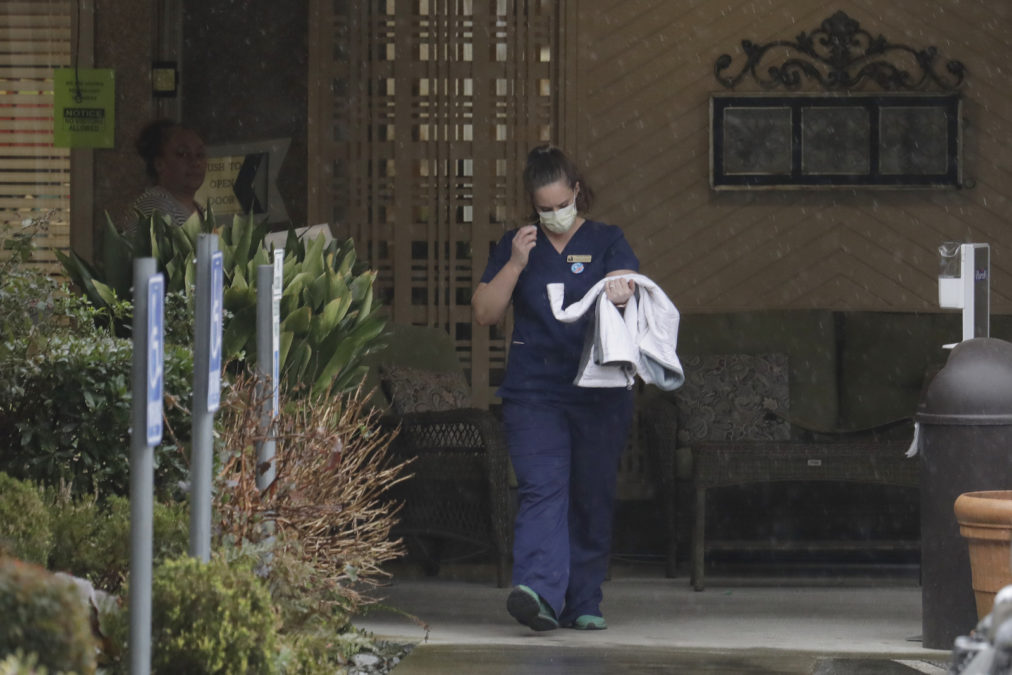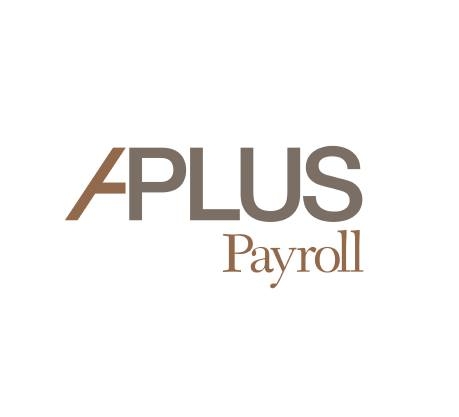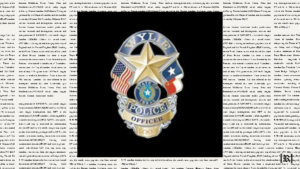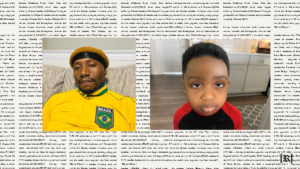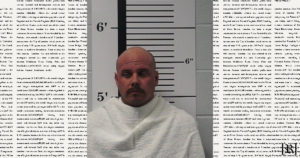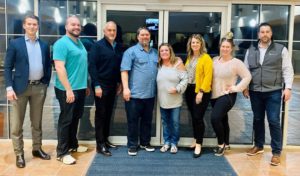Last updated on March 23, 2020
By Jennifer Gollan Reveal from The Center for Investigative Reporting March 6, 2020
This story was originally published by Reveal from The Center for Investigative Reporting, a nonprofit news organization based in the San Fransisco Bay Area. Learn more at revealnews.org and subscribe to the Reveal podcast, produced with PRX at revealnews.org/podcast
Legions of low-wage elder care workers lack paid sick leave and health care, increasing the risk of exposure to the new coronavirus for more than 2 million residents in nursing homes and senior care facilities across the country. Seniors are more likely to become infected with the coronavirus, especially if they have underlying health ailments, and the fatality rate for those over 80 was as high as 14.8% as of mid-February, according to the Chinese Center for Disease Control and Prevention.
“We’re trying our best to take precautions,” said Henry Sevilla, who earns $14 an hour working as a caregiver in a small senior care home in Antioch, in the San Francisco Bay Area. “I don’t have sick leave. I’m worried about it.”
Sevilla is careful to pull on a mask and rubber gloves before tending to residents in the facility. While California is one of a dozen states that require employers to provide paid sick leave, Sevilla says his employer ignores the requirement. If he falls ill with the coronavirus and has to stay home from work, Sevilla says he’ll lose pay.
Paid sick leave policies for low-wage workers, particularly those in elder care facilities, have gained widespread attention as COVID-19, the disease caused by the new coronavirus, spreads around the globe. As of today, more than 100,000 people have been infected and more than 3,400 have died, including 14 in the U.S. At least eight of those deaths were at a nursing home in the Seattle suburb of Kirkland, which remains under quarantine.
The United States is the only one out of 22 developed countries that does not require paid sick leave for workers. Low-wage workers such as caregivers in elder care facilities and those in the gig economy are far less likely than white-collar workers to have paid sick days, putting their health at greater risk.
Nearly all workers in the top 10% of income earners have paid sick leave, compared with less than a third of the lowest-wage workers, according to the most recent figures from the U.S. Bureau of Labor Statistics.
Wage theft is also endemic in some low-wage industries, such as senior care facilities. An investigation by Reveal from The Center for Investigative Reporting uncovered rampant exploitation of caregivers in senior board-and-care homes across the U.S. Many of these caregivers are immigrants who earn about $2 an hour to work around the clock, making it unaffordable for workers to take unpaid days off.
“Government officials are asking employees to stay home if they’re sick, but these employees can’t afford to miss a paycheck,” said Hina Shah, an associate law professor at Golden Gate University and director of the Women’s Employment Rights Clinic, which represents low-wage workers in cases involving wage theft. “In our public response to the coronavirus, public officials really need to step up to protect them” by mandating paid sick leave.
“People who are on the front lines of serving the public are very afraid,” she said.
The Trump administration this week met with nursing home and long-term care industry officials and updated protocols for nursing homes to limit the spread of infectious diseases. But an $8.3 billion emergency coronavirus aid package signed today by President Donald Trump did not include a paid sick leave mandate.
Some lawmakers are pushing forward. The House Education and Labor Committee has scheduled a subcommittee hearing for March 11 on the Healthy Families Act, reintroduced last year by Rep. Rosa DeLauro, D-Conn., and Sen. Patty Murray, D-Wash. The bill would require private employers to provide paid sick leave if they have 15 or more employees.
In addition, DeLauro and Murray introduced legislation today that would require all employers, even small senior care facilities, to allow workers to accrue a week of paid sick leave over time and to provide an additional two weeks of paid sick leave as needed during public health emergencies, including the coronavirus outbreak.
Researchers have shown that paid sick time reduces illness – among workers as well as people for whom they provide care.
“If working adults are able to stay home when they are sick, they are less likely to spread infectious diseases to adults they work with,” a 2009 study by the Center for Economic and Policy Research noted. The study found that providing paid sick days to health care employees helps to protect patients’ health. In particular, patients at nursing homes that provide their employees with paid sick days have lower rates of respiratory illness.
“In the case of health care workers, they’re working with people who are more susceptible to illness,” said Alex Baptiste, policy counsel for workplace programs at the National Partnership for Women & Families, a nonprofit advocacy group. “When these workers are unable to take a paid sick day, it really means they’re exposing the public to more illness. If you’re working in a low-wage industry, all your money is usually earmarked. If you’re sick, you can’t take a day off to get better – that’s rent, utilities and food.”
That was the case for Christine Talley, 63, who helps lead bingo and other activities for residents at a nursing home in Quakertown, Pennsylvania. While her employer offers 14 days of paid vacation each year, it does not offer paid sick days.
A few months ago, Talley caught a cold, but she had run out of vacation time. So she went to work wearing a mask.
“Money is tight,” Talley said. “I felt guilty because I was really paranoid about not giving anyone a cold. I felt really bad about going into work that way.”
The coronavirus outbreak has only compounded her anxiety about taking sick time should she fall ill.
This story was edited by Esther Kaplan and copy edited by Nikki Frick.
Jennifer Gollan can be reached at jgollan@revealnews.org. Follow her on Twitter: @jennifergollan.



